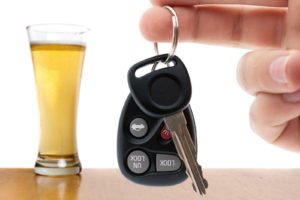- Colorado has a zero-tolerance rule in place for drivers who are under the age of 21
- The penalty for each additional DUI conviction is increasingly severe
- Drivers could lose their license for up to two years after a third DUI conviction, or the license could be permanently revoked
Many people enjoy drinking casually with friends and family from time to time, and some will get behind the wheel after drinking. You should be aware of the DUI laws and penalties that affect drivers in Colorado.
If you are in need of better car insurance in case that happens, enter your ZIP code above and compare at least three to four policies today!
DUI Laws
Like many other states, Colorado has strict DUI laws and actively enforces them with severe penalties for even a first offense.
For drivers who are 21 years of age or older, the state has a .08 percent blood alcohol concentration limit, and any drivers who are caught driving with a BAC level of .08 percent or higher may be charged with a DUI.
If drivers have a .17 percent blood alcohol concentration or higher, they could be charged with the more serious crime of aggravated DUI.
– Colorado’s Zero-Tolerance Alcohol Laws
Colorado is a “zero-tolerance” state regarding drivers under the age of 21 who are caught drinking and driving.
If a blood alcohol concentration level of as low as .02 to .05 percent is detected in a driver under the age of 21, the driver can be charged with a DUI. This young driver could face the same penalties that an older driver faces when convicted of a DUI in Colorado.
Colorado also has a strict policy regarding open containers of alcohol.
Open containers cannot be in the passenger seating area or cabin of a vehicle at any time. Any previously opened containers must be disposed of or stored in a vehicle’s trunk while the car is in motion.
– Colorado DUI Protocol
Colorado law enforcement officials use blood tests as well as breathalyzer tests to determine a driver’s blood alcohol concentration level. Typically, a breathalyzer test is applied in the field as a field sobriety test, but it may also be used after an arrest in a police station.
You should be aware that Colorado is an “expressed consent” state.
In an expressed consent state, you can refuse to take a sobriety test in the field before an arrest; however, if the law enforcement officer has suspicion or probable cause that indicates you have been drinking, that suspicion could lead to your arrest.
Once you have been arrested on suspicion of DUI, you must consent to a chemical or blood test to determine your alcohol concentration level. This test must be taken within two hours of the last time you drove a vehicle.
Keep in mind that your blood alcohol concentration level as determined by a chemical test can be used to determine if law enforcement will charge you with a DUI or a DWAI.
A DUI, or driving under the influence, charge results when a driver has a BAC of .08 percent or higher. A DWAI, or driving while ability impaired, occurs when a driver has a BAC of between .05 and .08 percent.
DUI Penalties
The DUI and DWAI penalties that you may face if convicted in Colorado are severe, and the severity increases with additional convictions.
– First Offense
For your first DUI conviction, you may:
- Spend up to one year in jail
- Be charged a fine up to $1,000
- Have your license suspended for nine months
For the first offense of a DWAI, you may spend up to 180 days in jail and be charged a fine up to $500.
– Second Offense
For a second offense of a DUI or DWAI charge, you may:
- Serve up to one year in jail
- Be charged a $1,500 fine
- Have your license suspended for a year
- Be required to use an interlock ignition device
Free Car Insurance Comparison
Compare Quotes From Top Companies and Save
– Third Offense
If you are convicted of a third DUI offense, you will:
- Spend up to one year in jail
- Pay a $1,500 fine
- Have your license suspended for up to two years
- Be required to use an interlock ignition device
With a third DWAI offense, these penalties are the same, except the maximum fine amount is $1,000.
An interlock ignition device requires you to take a breathalyzer test each time before you turn on your ignition, and it reports its findings to law enforcement professionals. Note that the ignition of your car will not start if you fail the breathalyzer test.
– Habitual Offender
If you receive three or more DWAI or DUI convictions in Colorado, you will be classified as a habitual offender, which results in a class 4 felony. The penalties for this type of charge include:
- Serving between two to six years in jail
- Being on parole for three years
- Having to complete between 48 and 120 hours of public service
Colorado also has other penalties for different combinations of crimes.
For example, if you are charged with a DWAI with a previous DUI conviction on your record, you may:
- Spend between 60 days and one year in jail
- Be fined an amount between $800 and $1,200
- Be required to complete between 52 and 104 hours of public service within a specified period of time
If you are convicted of a DUI with a previous DWAI conviction on your record, you may:
- Serve between 70 days and one year in jail
- Be fined between $900 and $1,500
- Serve between 56 and 112 hours of public service
While some states have a look back period, there is not a look back period in Colorado. Therefore, all DWAI and DUI convictions throughout your life will count when determining your penalty after receiving a conviction.
A second offense would receive significantly harsher penalties even if the first offense occurred years or decades before.
Points System
Colorado uses a points system to track driving activity for each licensed driver. The system uses numerical values for particular types of violations, and these points are recorded on your driving record.
If you receive too many points, you could have your driver’s license suspended or revoked.
The maximum number of points that a driver can earn in Colorado is graduated.
Drivers under the age of 18 have a maximum threshold of six points obtained over a 12-month period and seven points total. Drivers who are between the ages of 18 and 21 cannot receive more than nine points within 12 months, 12 points within 24 months, and 14 points total.
Drivers who are 21 years old and older cannot receive 12 points for 12 months or 18 points within 24 months.
As you can see, the points system has a rolling timeline that looks at your last one to two years of driving history.
Some counties in Colorado also allow drivers to take a defensive driving class to erase some points from their record, although it’s not a statewide program and is not available to all drivers.
If you exceed the maximum number of points allowed within a certain timeframe, a judge will decide the length of your license suspension or about the possibility or a revocation during a hearing.
Revocation and Suspension
When your license is revoked, you permanently lose the right to drive in that state. A revocation most commonly is issued when a driver has repeat violations of crimes such as:
- Street racing
- Fleeing an accident
- Driving under the influence of drugs or alcohol
- Reckless driving
A suspension, on the other hand, is the loss of your license for a temporary time period; this period may be six months, 12 months, or longer in some cases.
Your license may be suspended for a single charge of any of the above incidents or when your points exceed the maximum permitted for the time period.
Keep in mind that you may be able to defend yourself and request leniency during a hearing regarding your suspension, but there are no guarantees that the judge will rule in your favor.
Your suspended license can be reinstated only after the expiration date. You will need to submit documentation to the court showing that all court costs and fines have been paid.
You may also need SR-22 coverage. Drivers may be able to submit the required documents online or mail them to the court for approval.
An SR-22 is simply a form that provides proof that you have coverage, but it is not the actual coverage.
Some drivers may have trouble finding an SR-22 insurer, because some insurance companies do not offer this type of coverage. Some drivers may need to buy coverage through a high-risk insurance provider.
For many drivers who are charged with a DUI or DWAI in Colorado, the court may require attendance at the Colorado Alcohol Safety Action Program.
This program is a short-term course designed to teach drivers about the dangers of driving while under the influence of alcohol. Attendance would be required if this program is mandated by the court.
Insuring a DUI Offender
A DUI is a serious offense, and a conviction on your record may make it difficult for you to find the coverage you need.
Some insurance companies may insure you only if you use an interlock ignition device, which requires you to take a breathalyzer test inside your car each time before you turn the vehicle on.
Other insurance companies offer a discount on your coverage if you install this device in your vehicle.
Drivers may qualify for better rates or may more easily find coverage after a DUI conviction when they have re-established a good driving history. Drivers may need to shop around for new rates periodically after a DUI to find the best coverage available as their record improves.
Looking for better and more affordable auto insurance coverage? Start comparison shopping today by entering your ZIP code below!







